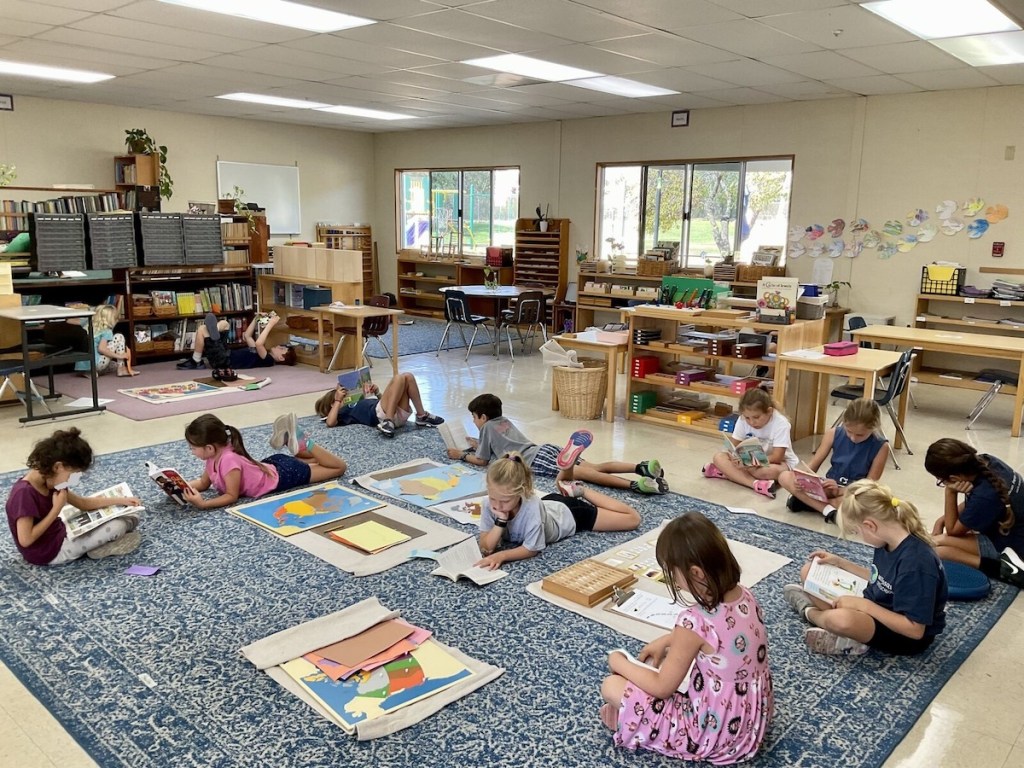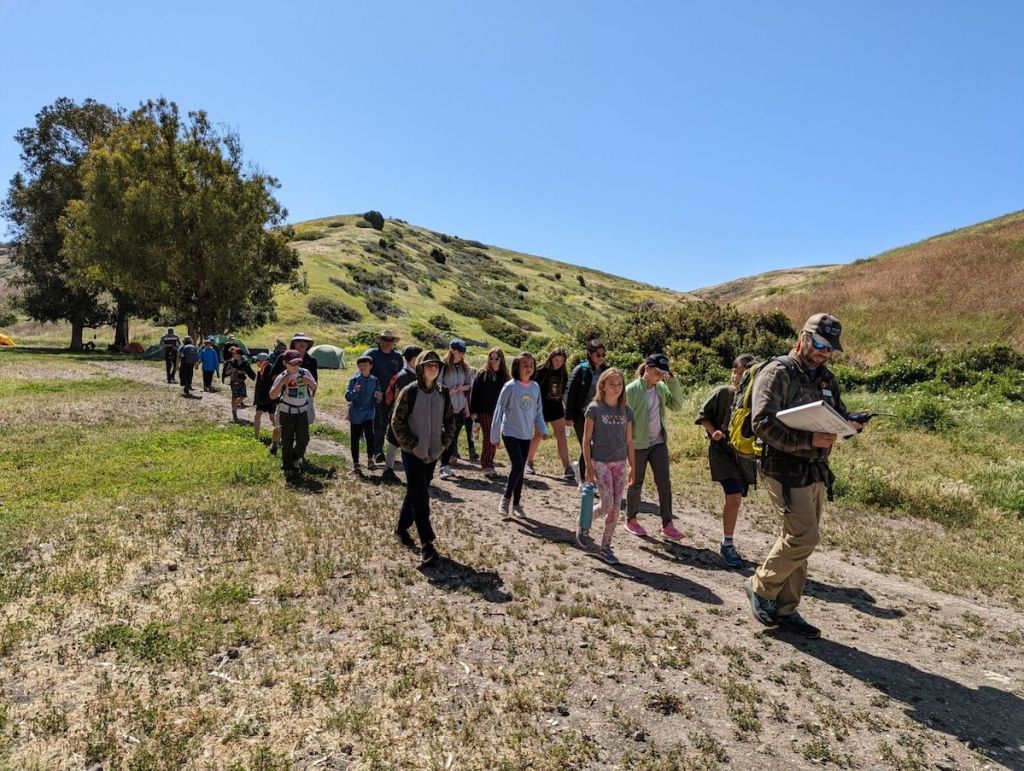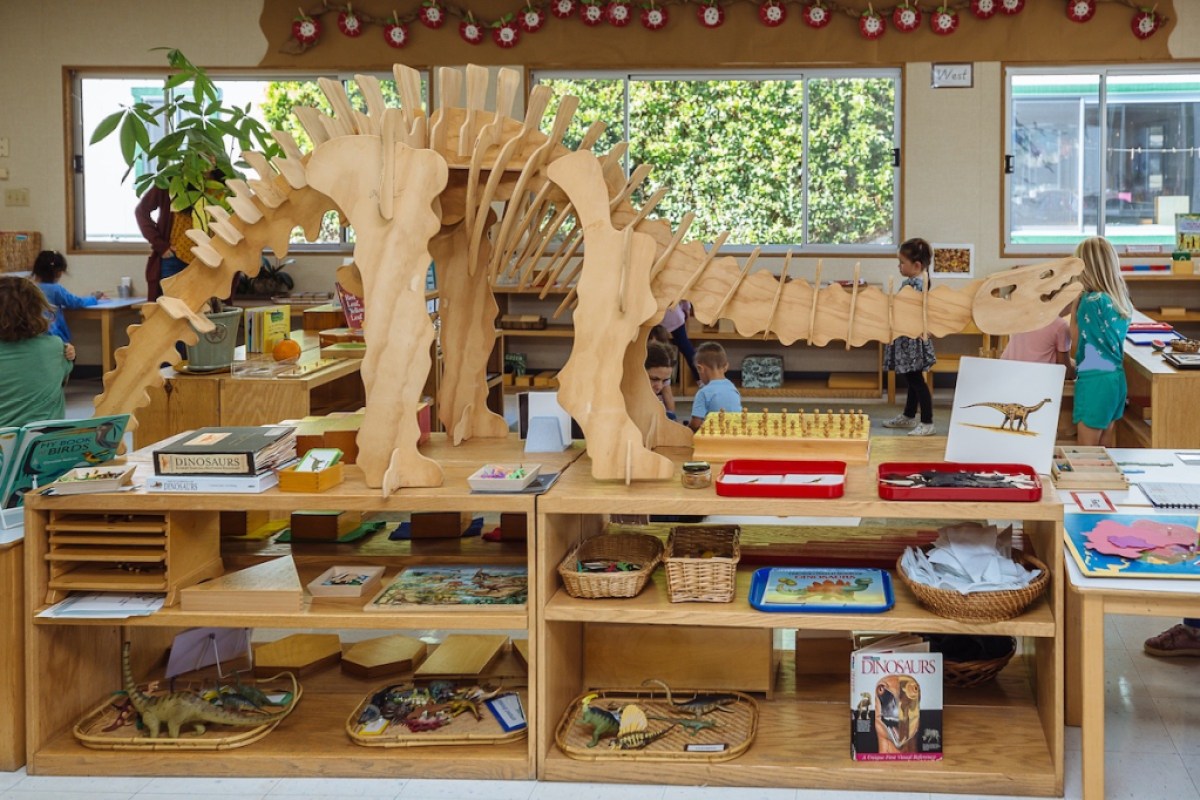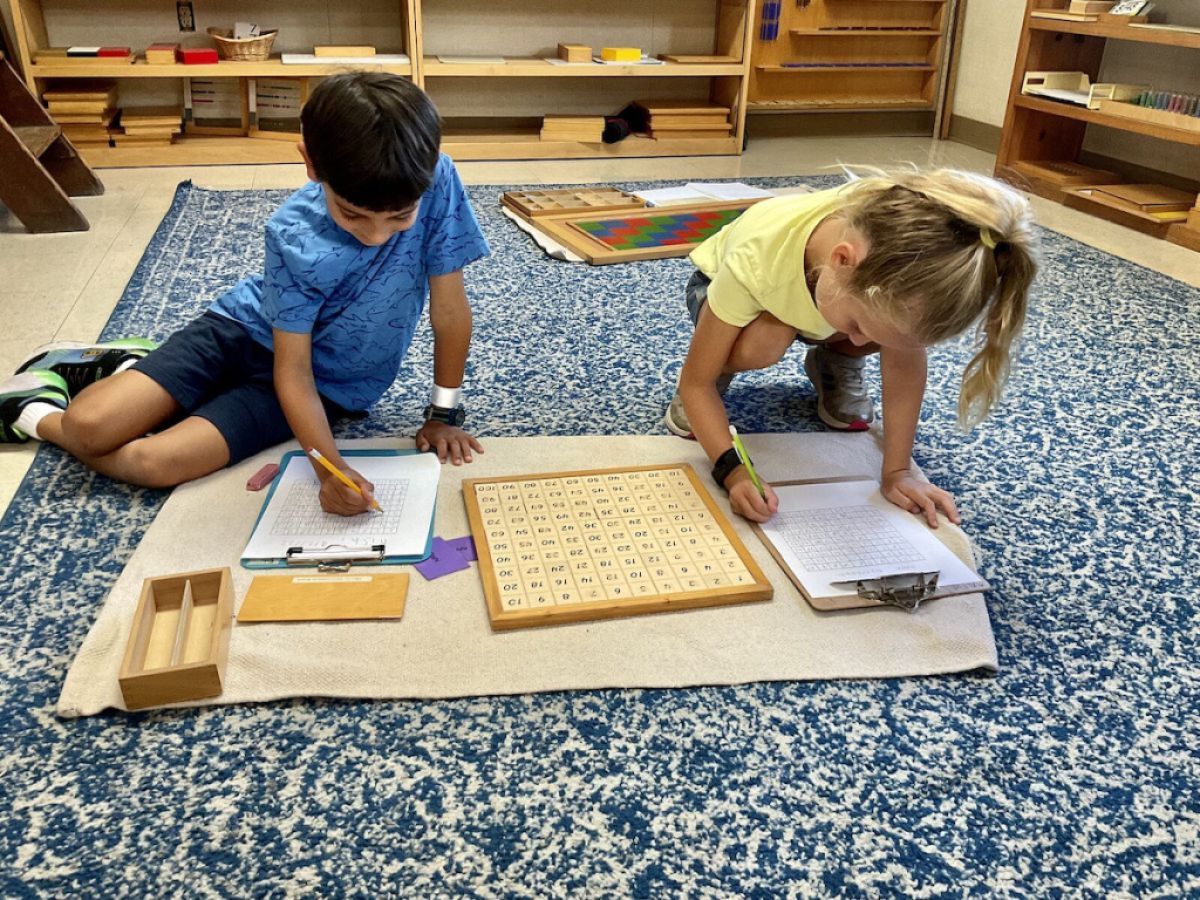Exploring the
Montessori Approach
How Montessori Center School Meets
the Needs of 21st-Century Learners
By Leslie Dinaberg | November 10, 2022

Read all of the stories in our “Schools of Thought 2022” cover here.
“Montessori prepares its students well for what they will face as older students and adults,” says Melanie Jacobs, who’s been head of Montessori Center School (MCS) since 2016 and worked at MCS for almost 30 years.
Students have opportunities to do collaborative work from a young age, she explains. “Allowing them to build their social skills and work effectively with others. At the elementary level, the students do research together and often present their findings to their classmates and/or parents through oral presentations. Events such as science fairs, historical figure reports, poetry recitals, and dramatic productions allow them to hone their public speaking skills and become comfortable interacting with peers and adults.”
Problem-solving is another skill emphasized in the program. “They are encouraged to think out of the box regularly and are urged to participate in their classroom and school community in many ways. If they have ideas, they are listened to by their teachers and peers,” says Jacobs.
As an example, she points out the school’s Gaga Ball Pit (Gaga is a fast-paced, high-energy sport played in an octagonal pit and sometimes described as a kinder, gentler version of dodgeball). “Our upper elementary students played the game at a science camp they attended. When they returned to school, they raised money to build their own Gaga Ball Pit, organizing parent volunteers to build and install it.”

Students taking the lead in a project like bringing a new game to the school is also an example of the value placed on independence and self-sufficiency. “The independence that Montessori emphasizes helps students strengthen their executive functioning skills, such as time management, organization, problem-solving, task initiation, etc. They learn to use tools such as work charts and planners at the elementary level so that they can be advocates of their own learning,” Jacobs says.
In another nod to the workforce of the future, she adds, “We also incorporate computer science into our curriculum at the upper elementary level, covering skills such as keyboarding, slideshow presentations, basic coding, research, and more.”
Respecting all people and cultures of the world is at the heart of the Montessori philosophy, which is especially important in today’s world, Jacobs says. “‘Respect for all’ is one of our core values, and this includes respecting the environment, which is crucial for students who will become life-long learners who will become positive forces to care for and transform our world.”
Among the most important ways that Montessori differs from the more traditional approaches to teaching is a focus on the whole child. Which means, Jacobs says, “that we place special emphasis on several areas of a child’s development, including academic, social, emotional, physical, and moral development. We view these categories as equally important, and the Montessori curriculum addresses all of these areas.”
See mcssb.org.






You must be logged in to post a comment.